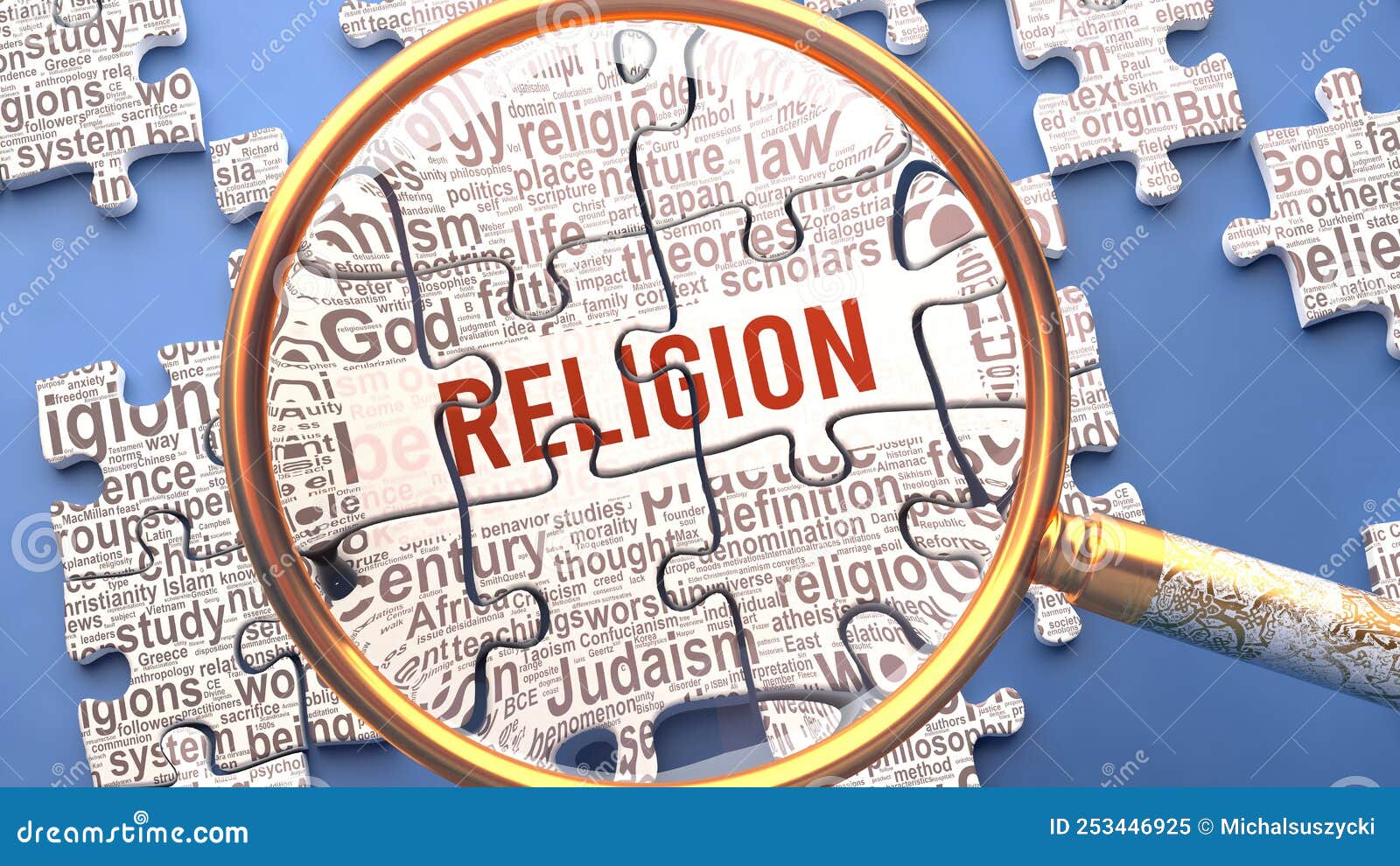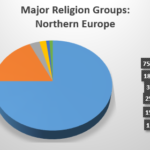Understanding the Subjectivity of Religion: Perspectives, Challenges, and Guidance

Introduction
The question of whether religion is subjective has sparked significant debate among philosophers, theologians, and laypeople alike. To explore this issue, it is crucial to clarify what is meant by “subjective”-that is, rooted in personal experience, emotion, or perspective-versus “objective,” which refers to qualities or truths that exist independently of individual feelings or opinions. This article examines the extent to which religion is subjective, explores counterarguments, and provides practical guidance for those seeking to understand or engage with religious belief in a diverse world.
Defining Subjectivity in the Context of Religion
Subjectivity, in broad terms, refers to judgments and beliefs shaped by personal perspectives, emotions, and experiences. When applied to religion, subjectivity suggests that religious beliefs and practices are deeply influenced by individual or collective human perception. Many scholars argue that religion is inherently subjective because it relies on personal faith, interpretation, and cultural background [1] . For instance, two individuals might belong to the same religious tradition yet interpret its tenets and rituals in profoundly different ways depending on upbringing, social context, and personal experiences.
On the other hand, objective religion would presuppose the existence of universal, immutable truths accessible and applicable to all people, regardless of context. While some religious traditions claim to offer such objective truths, disagreement and diversity in interpretations persist, suggesting a significant subjective component.
Religion as ‘Super Subjectivism’
Some philosophers describe religion as a form of “super subjectivism.” This view holds that, compared to secular subjectivism-where truth and morality are seen as products of individual or social consensus-religion introduces another layer of subjectivity through appeals to the supernatural or divine authority. In this framework, religious truth is determined by reference to what a deity or sacred text declares, yet the interpretation of these sources remains a human, subjective process. Thus, religion can be seen as the most intense form of subjectivism because its claims are ultimately validated by faith rather than empirical evidence [1] .
For example, within the same faith community, adherents may disagree on ethical issues, rituals, or the meaning of sacred texts, reflecting subjective interpretations shaped by tradition, authority, and personal conviction. The diversity of religious expressions worldwide-from deeply mystical traditions to highly codified legalistic ones-further illustrates the subjective dimension of religious life.
Balancing Subjective and Objective Elements in Religion
No major religion is entirely subjective or objective. Rather, religions tend to balance personal experience (subjectivity) with claims of universal truth (objectivity). For example, Christianity emphasizes both personal faith in Christ and adherence to objective doctrines. Islam balances individual submission to God with the objective authority of the Quran. Buddhism encourages personal enlightenment while upholding universal principles such as the Four Noble Truths [2] .
Yet, as religious history shows, the pendulum often swings between subjective and objective emphases. At times, religious movements become highly personalized and mystical, focusing on inward experience. At other times, they stress external laws, rituals, and communal standards. This dynamic tension shapes religious development and explains the vast diversity of religious expressions.
Philosophical Perspectives on Religious Subjectivity
Philosophers have long debated whether faith can ever be truly objective. Some argue that because faith is rooted in personal conviction and transcends empirical verification, it is essentially subjective. Others contend that religious traditions make objective claims about reality, morality, and the divine, which can be evaluated and debated [4] . The 20th-century philosopher Ludwig Wittgenstein, for example, suggested that religious language and practice must be understood within their own “language-games”-that is, their internal logic and rules-rather than measured by the standards of empirical science.
More recently, some philosophers have proposed viewing faith as a metaphorical moon, visible from many perspectives. Each person sees faith differently based on their location, experience, and context-yet the object of faith remains the same. This analogy highlights both the subjective and potentially universal aspects of religion [3] .
Religious Experience and Epistemology
Religious epistemology examines how people come to know or believe in religious truths. Many believers point to personal experiences-such as feelings of transcendence, mystical encounters, or answered prayers-as evidence for their faith. Critics argue that such experiences are inherently subjective and cannot serve as reliable grounds for universal truth claims. However, some philosophers draw an analogy between religious and perceptual experience: just as we generally trust our senses despite occasional errors, we might also treat religious experience as a valid, though not infallible, way of knowing [5] .
Practical guidance for navigating religious epistemology includes seeking diverse perspectives, reflecting on personal experiences, and engaging with both religious and secular sources. While it may not be possible to eliminate subjectivity entirely, cultivating critical thinking and openness can help individuals arrive at more thoughtful positions.
Practical Steps for Engaging with Religious Subjectivity
Whether you are a seeker, a believer, or a skeptic, you can approach the subjectivity of religion constructively by taking the following steps:

Source: discover.hubpages.com
- Reflect on personal beliefs and experiences: Consider how your upbringing, community, and life events have shaped your views. Journaling or discussing with trusted individuals can offer deeper insight.
- Study multiple religious perspectives: Reading sacred texts, theological commentaries, and critical scholarship can broaden your understanding. You can find resources at public libraries or academic institutions specializing in religious studies.
- Engage in respectful dialogue: Interfaith or secular discussion groups foster understanding by exposing participants to diverse viewpoints. Local community centers and universities often host such events.
- Consult recognized authorities: If you have specific questions about religious doctrine or practice, consider reaching out to clergy, theologians, or academic experts.
- Practice critical self-examination: Be willing to question your own assumptions and seek out credible evidence for your beliefs when possible.
If you are searching for specific services related to religion-such as counseling, interfaith resources, or academic programs-you can:
- Visit the official websites of major religious organizations for contact information and resources.
- Search for accredited university departments of religious studies for academic guidance.
- Contact local interfaith councils or community centers for opportunities to participate in dialogue and educational events.
Challenges and Solutions in Addressing Religious Subjectivity
One challenge of religious subjectivity is the potential for misunderstanding or conflict when deeply held beliefs differ. To address this, prioritize empathy, active listening, and a willingness to learn from others. Another challenge is the risk of relativism-the idea that all beliefs are equally valid, which may undermine meaningful dialogue. Balancing respect for individual perspectives with a commitment to shared values (such as compassion, honesty, and justice) can help navigate these complexities.

Source: animalia-life.club
Alternative approaches include exploring secular philosophies, comparative religion, or spiritual but non-religious frameworks. Each offers its own perspective on the subjective and objective aspects of belief.
Key Takeaways
The question of whether religion is subjective does not yield a simple yes or no answer. Religion involves a complex interplay between personal experience and claims to universal truth. By understanding this complexity, individuals can approach religious topics with greater awareness, respect, and intellectual humility. For further exploration, consult the references below or seek out accredited academic and community resources.
References
- [1] The Objective Standard (2017). Religion Is Super Subjectivism.
- [2] Ministry Magazine (1965). Subjective and Objective Religion.
- [3] Wayzgoose (2024). On Faith and Subjectivity: Does Anyone Have to Be Right?
- [4] Stanford Encyclopedia of Philosophy (2007). Philosophy of Religion.
- [5] Internet Encyclopedia of Philosophy (2025). Religious Epistemology.






